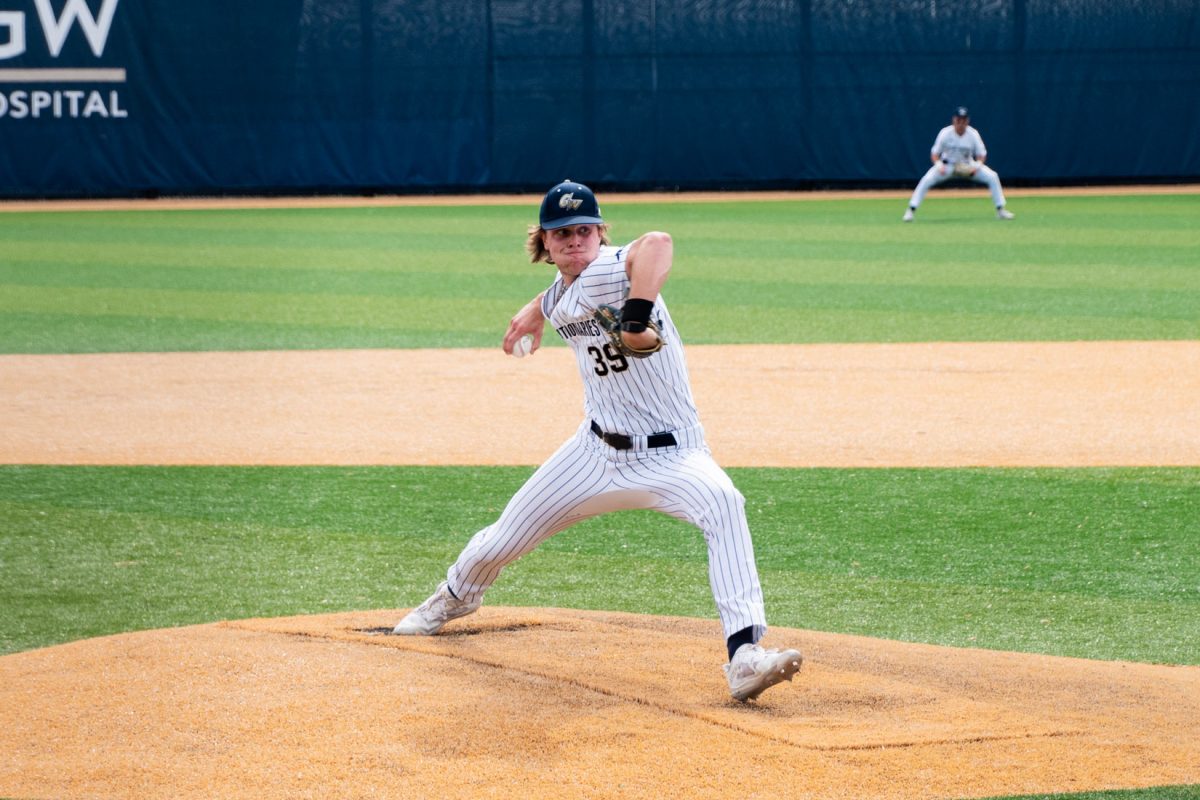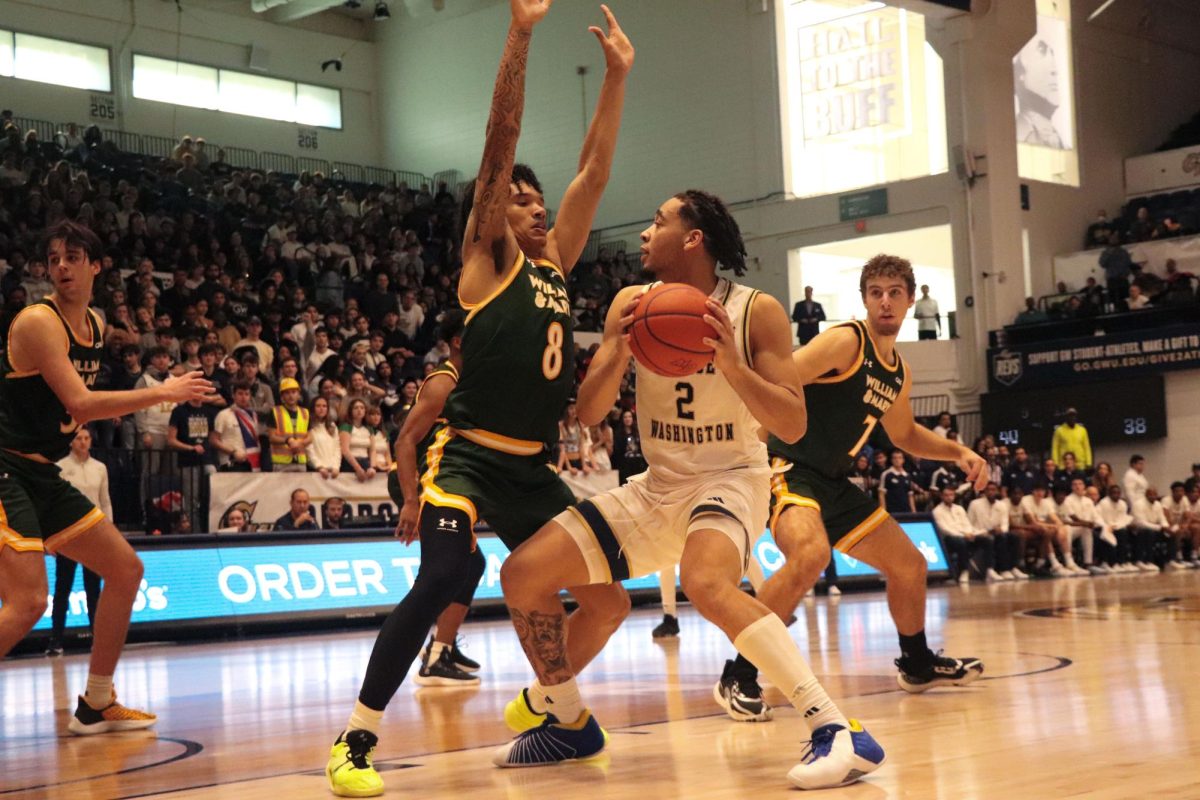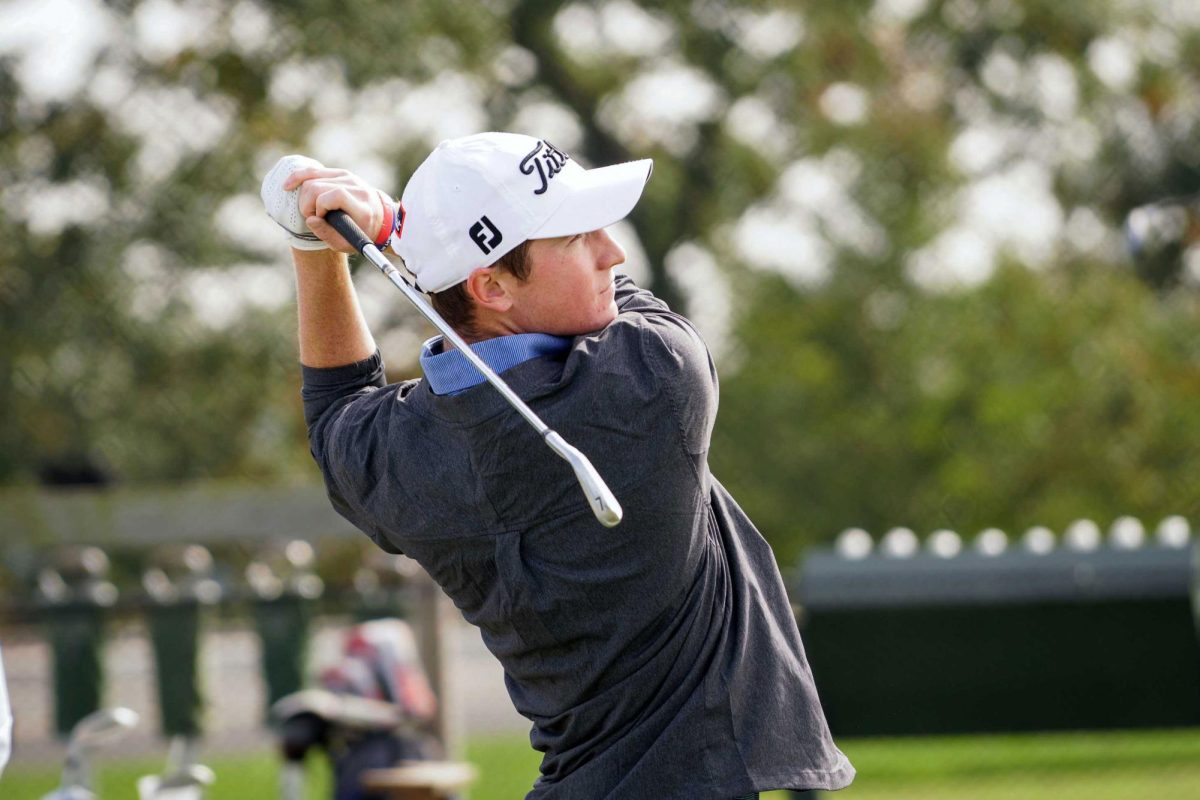Rachel Meinecke was shocked last year when GW’s athletics department announced it would upgrade the women’s softball club to varsity status to ensure the University met NCAA standards and Title IX requirements.
It was a surprise because only a year before GW softball didn’t exist.
“When I first came here, I didn’t know whether GW had a club team or not,” said Meinecke, a junior club member. “I talked to Aubre Jones, director of recreational sports at GW, and he asked if I might be interested in starting a club. During my freshman year, nothing really happened, and I didn’t really talk to him much.”
But by sophomore year, Becky Alterman joined Meinecke in trying to get a softball club off the ground. The two posted fliers around campus and began holding informal meetings and practices. They even had a few scrimmages against Georgetown University and a traveling team from Maryland. So after its humble beginnings, it came as quite a shock when The Washington Post ran a story last summer reporting GW would make softball a varsity sport.
“I just walked into work one morning and someone said, `You’re going to be very happy,'” Meinecke said.
The club’s recent happiness has been dampened by the reality of delays. There will be at least a one-year delay because the team has no permanent field to play on, Director of Athletics Jack Kvancz said. The athletic department plans to build a softball field at GW’s Mount Vernon campus but cannot begin construction until the University and D.C.’s Board of Zoning Adjustment approve those plans.
“Once the plan gets approved, we’re ready to roll,” Kvancz said. “The question is then we have to go to the construction people and say `OK, is it going to take six months, 12 months, 18 months, or 24 months?'”
The delays haven’t slowed the team’s development. It now has a volunteer coach in Marie Parenti, executive assistant payroll director at the Smith Center.
“Marie came to work at the Smith Center, and I found out she had coaching experience for fast-pitch softball, and she played in college,” Meinecke said. “I felt with her experience and knowledge of the game, she would be the person to go to see if she would volunteer her time to coach the team, and she agreed.”
Along with a coach, the team now practices four times a week and has a full weekend slate of games. The weekend is the only time a club team can schedule games to avoid conflicts with classes, which is frustrating for the team because opponents are easy to find.
Also, to get to games, the players are forced to either drive their own cars or rent vans, requiring money they just do not have. The team has held various fund-raisers and receives funding from the recreational sports department. But softball requires umpires and expensive equipment.
“It costs $65 per umpire per game, and there are two umpires per game,” Meinecke said. “You play a doubleheader and that’s over $200.
“We weren’t able to purchase equipment this year,” she said. “All the uniforms and other stuff was paid for through our fund-raisers. Last year, when we started the team, we bought the basic equipment like helmets and balls, but stuff like bats, that’s our own stuff. We have three bats, and if those people don’t come to practice, we’re out of luck.”
The team holds practices at the comer of 23rd Street and Constitution Avenue on a dug-up field without a fence. With the help of Jones, the team secured a field in Arlington, Va., for its home games.
“The field has lights and a fence. It’s a nice field,” Meinecke said. “It’s a softball field as opposed to what we’ve been playing on.”
It may be a softball field, but the team needs to secure a permit every time it plays there. Kvancz said that situation isn’t acceptable for a varsity team.
Kvancz said his goal would be to have a one-year transitional period after the new facility is built. During that time, a permanent coach will be hired, and he or she can begin to recruit players and show them the facility.
“Softball is a league sport in the A-10s,” Kvancz said. “Let’s make sure that the foundation is made out of concrete and not sand. Let’s not hurry up to get sand and then find out two years down the road, it’s going to go down the tubes. Let’s build up a good program so we can compete in a league that’s very good.”
Meinecke said a competitive softball program will be great for GW, but it has forced the current team to rethink its goals.
“We really can’t look at varsity as our goal as a team because we really don’t know when it’s going to happen,” she said. “The University has its own little time clock that doesn’t really involve the students. We were very excited to begin with and then we had a series of problems. Right now, we’re kind of just staying with Aubre and (Recreational) Sports, because we can count on them.”







